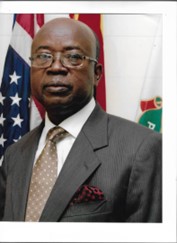By Kingsley LARBI (Rev. Prof)
Deep within the hinterlands of Ghana, a country rich with cultural heritage and natural beauty, lies a less visible narrative fraught with challenges and opportunities.
This narrative revolves around the path to education and a journey that encapsulates more than just miles traveled, but the collective hopes, struggles, and resilience of rural communities.
In his autobiographical book “Born to Win,” Rev. Prof. E. Kingsley Larbi offers an evocative chapter that sheds light on the harsh realities and transformative potential of education in these rural areas.
Chapter 9, a poignant recount of his own experiences, serves as a powerful lens through which we can explore these themes.
The detailed journey
For young Kingsley and many like him, the journey to Aboabo Sonkor Presbyterian Primary School was marked by more than physical distance. It began with overcoming socio-economic barriers where even basic educational supplies were a luxury few could afford.
Poverty and entrenched cultural biases against the education of girls and early schooling for boys were prevalent, setting a stage where only a few could aspire for more. Kingsley’s narrative begins with his struggle to gather the essential items needed for school; a uniform, a wooden slate, and books highlighting the economic hurdles that many families face.
Each school day, Kingsley joined a band of friends, trekking five kilometers through rural landscapes, navigating natural hazards, and confronting wildlife. These daily commutes were not just physical trials but social gatherings, where youthful fantasies and shared realities intermingled, creating bonds and fostering a spirit of community among the children.
The stories behind
One of the most striking elements of Kingsley’s school journey was the collective ethos of support and sharing that prevailed. When a child slipped and lost their lunch, others would share theirs, illustrating the deep-rooted sense of community that supported these young learners. The dangers they faced together from venomous snakes to treacherous paths cemented their resolve and underscored their dependence on one another for safety and emotional support.
Lessons learned
Kingsley’s educational journey is a testament to the power of resilience and the critical role of supportive educators. His initial struggles in the classroom were met with guidance and patience from teachers like Mr. Abankwa and later, Teacher Mantey, who recognized his potential and pushed him to excel. This support system not only helped him academically but also built his confidence, turning educational challenges into stepping stones for success.
The narrative also brings to light the broader implications for educational policy in rural Ghana. It underscores the necessity for accessible educational resources, improved infrastructure, and community-based educational strategies that consider the unique challenges of rural settings.
Conclusion
Rev. Prof. E. Kingsley Larbi’s “Born to Win” provides more than just a memoir of personal achievement; it offers a blueprint for how resilience, community support, and dedicated teaching can collectively overcome the barriers to education in rural Ghana.
As we reflect on Kingsley’s journey from a boy struggling to gather school supplies to a successful professor, we see a compelling call to action. This story urges policymakers, educators, and community leaders to recommit transforming the educational landscape of rural Ghana, ensuring that every child can embark on a journey not just to school, but towards a promising future.
Through this detailed exploration of Kingsley’s school days, we gain not only insight into the hardships faced by rural children but also the profound impact that education can have on their lives. This feature serves as a reminder and an inspiration that education, even in the most challenging environments, offers a pathway to success and a beacon of hope for the future.










